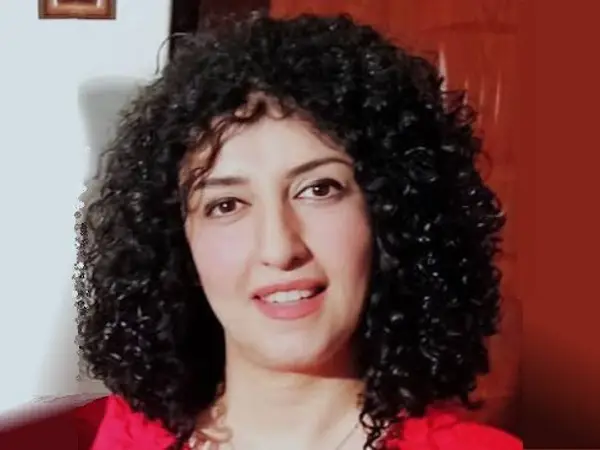Narges Mohammadi, the Iranian Nobel Peace Prize laureate, in a message from prison sent to Iran International says the struggle of Iranian women against forced hijab is “resistance against the government's oppression.”
Mohammadi made the statement as she observed her 53rd birthday in prison, marking the tenth time she has spent her birthday behind bars.
“The struggle of Iranian women against compulsory hijab is not merely a fight for the right to choose one’s dress; and the government’s oppression of women is also not just an issue of its religious ideology. Both Iranian women and the Islamic Republic regime recognize that this issue represents the defeat of religious tyranny,” she said.
Mohammadi has been imprisoned multiple times for her human rights activities and currently is serving a 6.5-year sentence. She was last arrested in 2022 during nationwide anti-government protests triggered by the death of 22-year-old Mahsa Amini in police custody. She was arrested in September 2022 for “improper hijab” and died three days later from severe head injuries.
Mohammadi said in her statement that “Compulsory hijab is a symbol of submission to illegitimate government authority, serving as a tool for the regime to maintain its power and control. The broad scope of this opposition has not only halted at the boundaries of women's rights but has also challenged the power apparatus itself.”
The government launched a new campaign in the streets to force women to wear hijab on April 14. Thousands of police officers and plainclothes agent patrol the cities to arrest women who appear in public without hijab. This has led to confrontations and violent arrests of mostly young women.
“The resurgence of morality patrols, the presence of law enforcement in uniforms, and the intensification of violence in public spaces are all government attempts to instill fear. However, the resistance and increased confrontations demonstrate the strength and power of the protesters,” Mohammadi noted.
Some observers believe that the crackdown was timed to coincide with heightened tensions between Iran and Israel, both as an opportunity to crack down while the world is focused on the possibility of large-scale conflict, and also to intimidate the population not to engage in protests.
Mohammadi, who has increasingly become a more vocal critics of the Islamic Republic, concluded her statement with praise for those who defy compulsory hijab: “Civil disobedience and defiance of compulsory hijab, especially by the younger generation of Iranian women, have brought them into the forefront. Despite the heavy toll they have borne, their courageous struggle against the government has left a significant mark. This fight, due to the inability of oppressive forces to sustain long-term presence on the streets and conversely, the potential for continued civil resistance by women, will ultimately benefit the people.”
